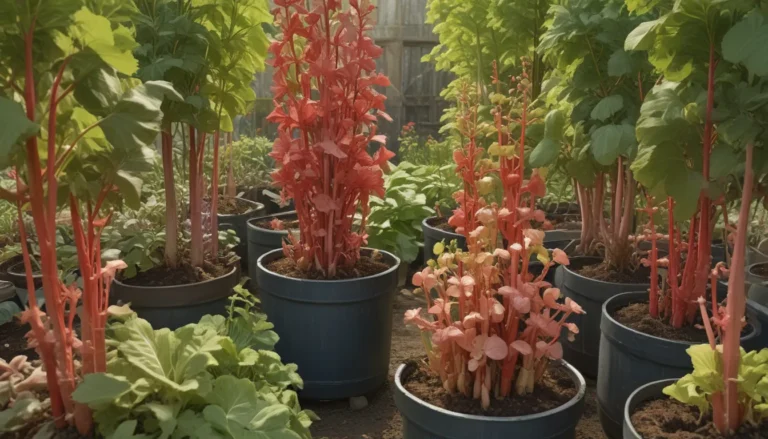Maximizing Blueberry Harvests: A Comprehensive Guide to Fertilizing Your Blueberry Bushes

Blueberries are not only a delightful addition to your garden but also a source of incredible nutrition. Fertilizing them correctly is key to ensuring a bountiful harvest of vitamin-packed berries that ripen between June and August.
In this comprehensive guide, we will delve into the world of blueberry fertilization, covering everything from nutritional needs to the best fertilizing techniques. So, if you’re ready to elevate your blueberry bushes to their full potential, grab your gardening gloves, and let’s get started!
Unpacking Blueberry Nutritional Needs
Before diving into fertilization, it’s crucial to understand the nutritional requirements of blueberry bushes. Blueberries thrive in acidic soil with a pH level between 4.0 and 5.5. Testing the acidity of your soil before planting will not only help you determine the pH level but also identify any potential nutritional deficiencies that need to be addressed.
Using a soil test kit like the Luster Leaf Soil Test Kit can provide valuable insights into the nitrogen, phosphorus, potassium, and pH levels in your soil. Adjusting the pH with products that promote acidity will keep your blueberry plants healthy and thriving.
When selecting a fertilizer, look for the NPK ratio, such as “10-10-10,” which indicates the nitrogen, phosphorus, and potassium content. These nutrients play crucial roles in plant growth, root development, blooming, fruiting, and disease resistance.
If your soil test reveals a nitrogen deficiency, opt for ammoniacal nitrogen fertilizers like ammonium sulfate or sulfur-coated urea. However, avoid products containing nitrates, as they can harm blueberry plants, particularly young specimens.
Key Nutrients for Blueberries:
- Nitrogen: promotes plant growth
- Phosphorus: encourages root growth, blooming, and fruiting
- Potassium: boosts disease resistance and vigor
To support the nutrient uptake of your blueberry bushes, consider using Espoma Urea Plant Food, a high-nitrogen soil amendment that provides the necessary nutrients without nitrates. Remember to avoid over-fertilization to prevent salt buildup, especially for container-grown blueberries.
Fertilizing Blueberry Bushes: Timing is Key
For optimal growth and fruit production, it’s essential to fertilize your blueberry bushes at the right time. Plan to fertilize your blueberries at least once a year, preferably in the early spring before new growth emerges. The first application is crucial for setting the stage for a healthy summer harvest.
Newly planted bushes under two years old may benefit from a second application in late spring, approximately six to eight weeks after the initial fertilization. Mature blueberry plants typically do not require a second application, so adjust your fertilization schedule based on the age of your bushes.
Ideal Fertilization Timeline:
- Early Spring: First application before new growth begins
- Late Spring (for young plants): Second application if necessary
Choosing the Right Fertilizer for Blueberries
When it comes to fertilizing blueberry bushes, several options are available, each tailored to meet the specific needs of these acid-loving plants. Consider the following types of fertilizers to ensure your blueberries receive the nutrients they require:
Liquid Fertilizers
Liquid fertilizers are ideal for blueberries with shallow root systems, allowing for easy absorption of nutrients. If you use a drip line irrigation system, incorporating liquid fertilizers into your watering routine can facilitate nutrient uptake.
Granular Fertilizers
Granular fertilizers, such as Fertilome Azalea and Camellia Mix, provide a slow-release nutrient source that is easy to apply around the base of your blueberry bushes. Avoid direct application at the plant base to encourage healthy root development.
Natural Fertilizers
For those preferring natural options, products like Down to Earth Acid Mix or organic amendments like spent coffee grounds and compost can provide essential nutrients for blueberry bushes. Adjust application rates based on the specific needs of your plants.
Enhancing Soil Health for Blueberries
In addition to fertilization, soil amendments play a vital role in ensuring optimal root growth and overall plant health. Consider incorporating the following soil amendments to create a thriving environment for your blueberry bushes:
Mycorrhizal Fungi
Beneficial mycorrhizal fungi promote robust root systems and enhance nutrient absorption in blueberry plants. By inoculating your soil with these beneficial microbes, you can improve your plants’ overall health and resilience.
Soil Acidifiers
If your soil lacks acidity, using a soil acidifier like Tiger Organic Sulfur can help create an optimal growing environment for blueberries. Opt for time-release acidifiers to maintain soil pH levels over an extended period and promote healthy plant growth.
Cultivating Happy Blueberry Bushes
By following the proper fertilization techniques and nurturing your blueberry bushes with the right nutrients, you can enjoy a bountiful harvest of delicious and nutritious berries. Remember to monitor your plants’ growth and adjust your fertilization schedule based on their specific needs.
Whether you prefer liquid, granular, or natural fertilizers, ensure that your blueberries receive the essential nutrients they require to thrive. By incorporating soil amendments like mycorrhizal fungi and soil acidifiers, you can create an optimal growing environment for your blueberry bushes.
Feel free to share your own tips and experiences with fertilizing blueberry bushes in the comments below. Happy gardening!
For more insights on growing blueberries, check out these additional resources:
- How to Transplant Blueberry Bushes
- How to Protect Blueberries from Birds
- Top 10 Blueberry Varieties to Grow for Home Harvests





